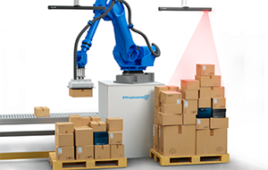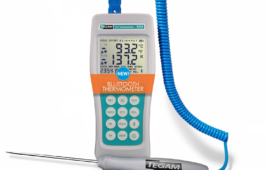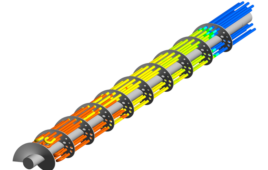 While industry pundits have forecasted the end of analog design in the next leading edge process, the reality is that the practice is still going strong, and there’s no end in sight. Not only are teams still designing data converters, PLLs, filters, and other analog goodies in the latest processes (including FinFET), but design teams are reaching higher levels of performance than they did in yesterday’s processes. The new processes have, without a doubt, changed the task of analog design, and the designer’s toolkit has had to undergo a major revision. Many of our old techniques have become a lot less relevant, and today’s designer needs to have a good handle on a broad set of new techniques.
While industry pundits have forecasted the end of analog design in the next leading edge process, the reality is that the practice is still going strong, and there’s no end in sight. Not only are teams still designing data converters, PLLs, filters, and other analog goodies in the latest processes (including FinFET), but design teams are reaching higher levels of performance than they did in yesterday’s processes. The new processes have, without a doubt, changed the task of analog design, and the designer’s toolkit has had to undergo a major revision. Many of our old techniques have become a lot less relevant, and today’s designer needs to have a good handle on a broad set of new techniques.
Some of the changes are a result of designers targeting processes for very digital applications (supply voltages of 0.8V and less). Others are a result of the size of the devices (matching of small devices is poor, matching of very small devices is worse). Changes are also a result of the new fabrication techniques that must be used to make the devices (unit-sized devices and no mixing of different device types – resistor and I/O device ghettos are required). Of course, there’s great news: the transistors are wonderfully fast and the digital is almost free.
Watch this webinar to:
- Gain an understanding of the challenges of analog design in the new world of leading-edge processes
- Learn about design techniques that take advantage of the characteristics of today’s design reality
About our speaker:
 Mr. Naviasky is a fellow in the IP group of Cadence Design Systems, Inc. He has been designing analog and mixed signal integrated circuits for the last 35 years for a wide variety of applications including RF communications, biomedical, aerospace, and commercial. He was one of the founders of the Cadence analog mixed signal design services organization in 1996 and was the CTO of the Tality spinout at Cadence. Mr. Naviasky has written numerous publications and holds several dozen patents in the field of analog IC design. He earned a BSEE degree from Johns Hopkins University.
Mr. Naviasky is a fellow in the IP group of Cadence Design Systems, Inc. He has been designing analog and mixed signal integrated circuits for the last 35 years for a wide variety of applications including RF communications, biomedical, aerospace, and commercial. He was one of the founders of the Cadence analog mixed signal design services organization in 1996 and was the CTO of the Tality spinout at Cadence. Mr. Naviasky has written numerous publications and holds several dozen patents in the field of analog IC design. He earned a BSEE degree from Johns Hopkins University.
Filed Under: WEBINARS, Analog IC Tips





Tell Us What You Think!